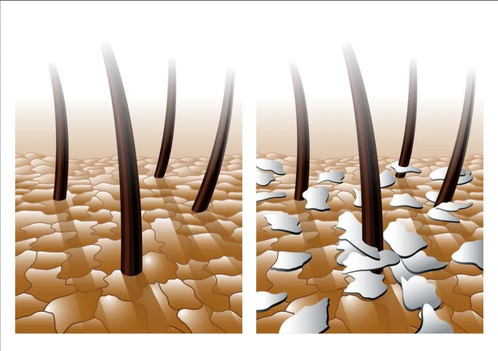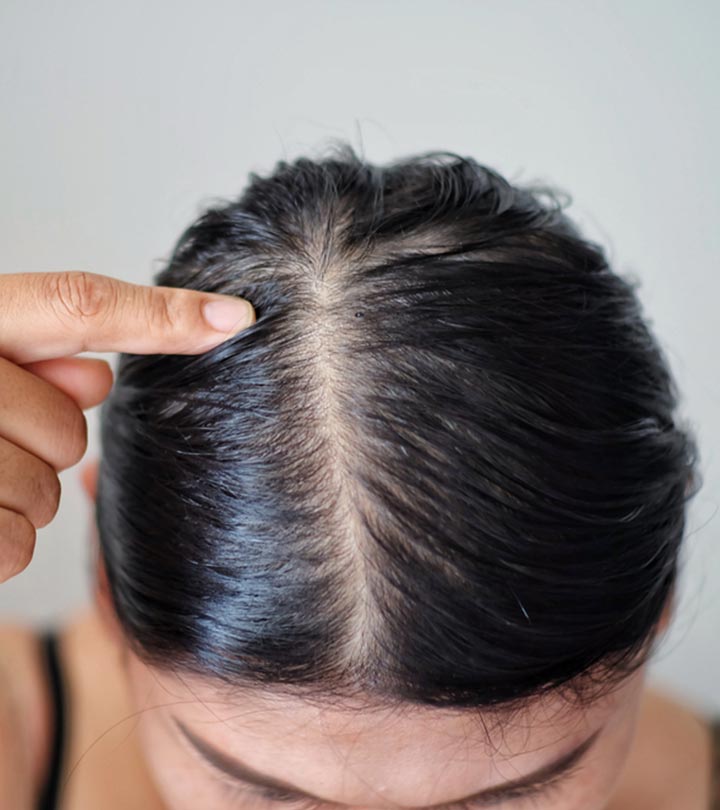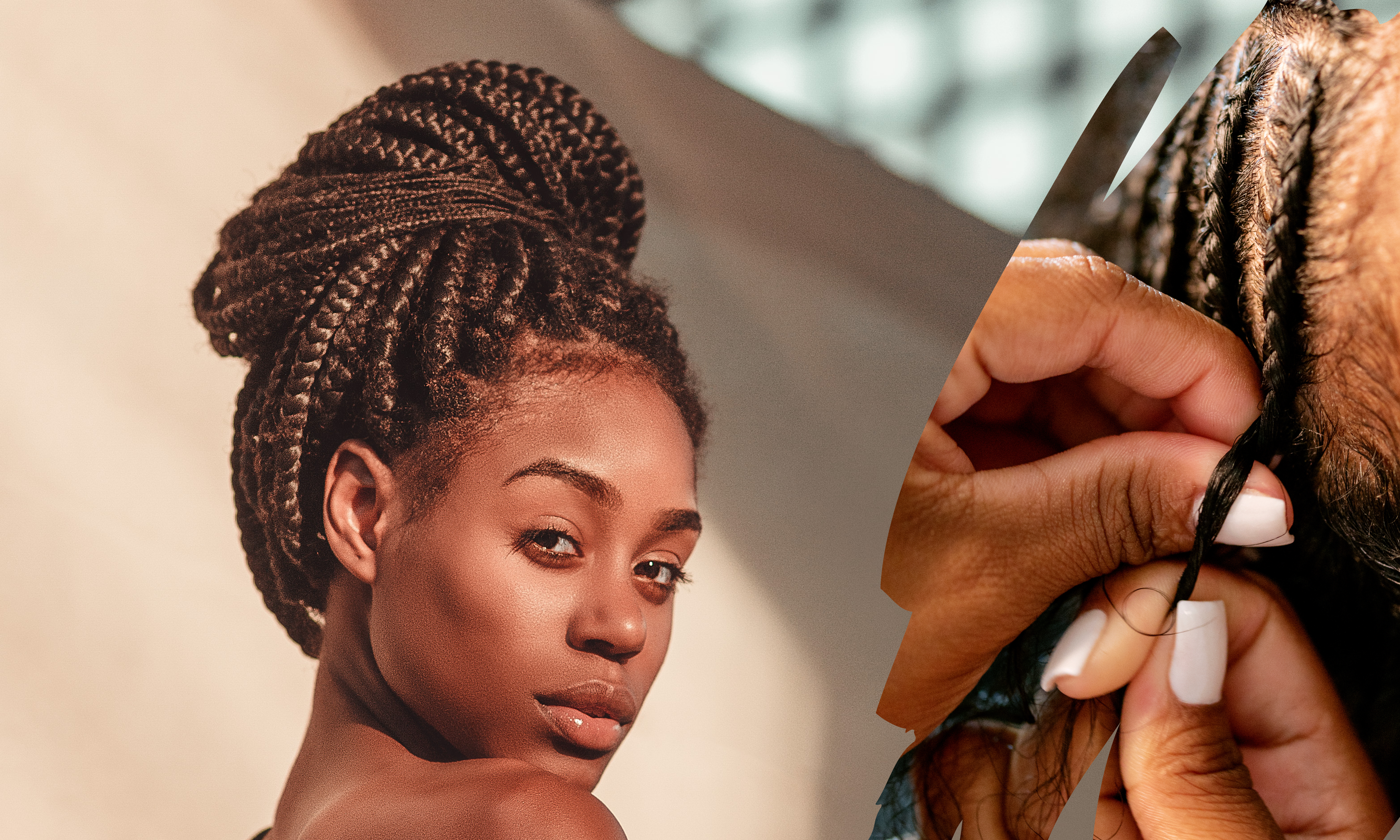Dandruff vs Dry Scalp: Understanding the Difference and Finding Solutions

Exploring Dandruff vs Dry Scalp
Discover the differences between dandruff vs dry scalp and learn effective tips for maintaining a healthy scalp. Find solutions and practical advice at Dailypathways for all Health & Beauty concerns
In this informative article, we’ll delve into the world of dandruff vs dry scalp, helping you grasp their dissimilarities and providing practical tips for maintaining a healthy scalp. By understanding these conditions better, you’ll be equipped to make informed choices and find suitable solutions that cater to your specific needs.
Dandruff: Tackling Those Pesky Flakes
Dandruff is a common scalp issue that can be bothersome and embarrassing. It manifests as white or yellowish flakes accompanied by itching and irritation. It’s time to take control and bid farewell to those unwelcome visitors.
Understanding the Causes of Dandruff
Dandruff is a common scalp condition that affects many individuals worldwide. While it may seem like a mere annoyance, understanding its underlying causes is crucial for effective management. Let’s explore the primary factors that contribute to dandruff:
Malassezia Fungus: The Culprit Behind Dandruff
Meet Malassezia, a naturally occurring fungus that resides on your scalp. In most cases, this fungus coexists peacefully without causing any harm. However, certain triggers can disrupt the scalp’s delicate balance, leading to an overgrowth of Malassezia and resulting in dandruff. When the fungus feeds on the scalp’s oils, it produces byproducts that irritate the skin, causing excessive shedding of skin cells and the characteristic flakes associated with dandruff.
Excess Oil Production: Fueling Dandruff Development
Your scalp has sebaceous glands responsible for producing oil, which is necessary to keep your hair and scalp moisturized. However, when these glands go into overdrive and produce an excessive amount of oil, it can create an environment that promotes the growth of Malassezia fungus. The excess oil provides the fungus with an abundant food source, leading to its proliferation and the subsequent development of dandruff.
Scalp Sensitivity: A Susceptibility to Dandruff
While everyone’s scalp has its own unique characteristics, some individuals have a more sensitive scalp than others. This heightened sensitivity can make the scalp more prone to react to certain triggers, such as harsh hair care products or environmental factors like extreme temperatures or pollution. When the scalp becomes irritated, it can worsen dandruff symptoms, leading to increased flaking and discomfort.
Managing Dandruff: Effective Strategies
Controlling dandruff requires a holistic approach that addresses its root causes. Here are some proven methods to keep those flakes at bay:
Dealing with dandruff can be frustrating, but with the right strategies, you can effectively manage this common scalp condition. Here are some practical tips to help you combat dandruff and reduce its symptoms:
1. Choose Anti-Dandruff Products
When selecting hair care products, opt for shampoos specifically formulated to target dandruff. Look for active ingredients such as zinc pyrithione, selenium sulfide, or ketoconazole. These components work by regulating the growth of the Malassezia fungus, which is often associated with dandruff. Regular use of anti-dandruff shampoos can help minimize flaking and control dandruff outbreaks.
2. Practice Regular Scalp Care
Maintaining a clean and healthy scalp is essential for managing dandruff. Make it a habit to cleanse your scalp regularly using a mild shampoo. It’s important to note that using lukewarm water is beneficial as hot water can strip away the natural oils from your scalp, potentially worsening dandruff symptoms. Gently massage the shampoo into your scalp, ensuring thorough cleansing to remove excess oil, flakes, and product buildup.
3. Avoid Irritants
Certain hair care products and ingredients can irritate your scalp and exacerbate dandruff symptoms. Be mindful of the products you use and avoid those that may cause irritation. Opt for gentle alternatives that are free from harsh chemicals, fragrances, and potential allergens. Fragrance-free products are especially beneficial for individuals with sensitive scalps. By minimizing exposure to irritants, you can help prevent flare-ups and maintain a healthier scalp.
4. Maintain a Healthy Lifestyle
A healthy lifestyle can contribute to scalp health and reduce the likelihood of dandruff. Ensure you have a balanced diet that includes essential nutrients like vitamins, minerals, and omega-3 fatty acids. These nutrients can nourish your scalp and promote a healthy environment, making it less conducive for dandruff to develop. Additionally, managing stress levels and practicing relaxation techniques can help reduce dandruff flare-ups, as stress is known to impact overall skin health.
5. Seek Professional Advice
If home remedies and over-the-counter products don’t effectively manage your dandruff, it may be beneficial to consult a dermatologist or a trichologist. These professionals specialize in scalp and hair health and can provide personalized recommendations and treatments based on the severity of your dandruff.
By implementing these effective strategies, you can take control of your dandruff and enjoy a healthier scalp. Remember, consistency and patience are key when managing dandruff, so stick to a regular hair care routine and be proactive in finding the best solutions for your specific needs.
Dry Scalp: Replenishing Moisture

Dry scalp is another common issue that can cause discomfort and affect the overall health of your hair. While it may share some similarities with dandruff, it’s important to understand its unique characteristics in order to effectively address and manage the dryness.
Identifying the Causes of Dry Scalp
Dry scalp can be uncomfortable and frustrating to deal with. Understanding the underlying causes can help you effectively address this condition and restore moisture to your scalp. Let’s explore the common factors that contribute to dry scalp:
1. Lack of Moisture
Just like your skin, your scalp requires proper hydration to stay healthy. Insufficient moisture can lead to dryness and flaking. Several factors can contribute to moisture loss, including:
- Cold Weather: During the winter months, the air tends to be drier, which can deplete moisture from your scalp. The combination of cold air outside and indoor heating can exacerbate dryness.
- Excessive Heat Styling: Frequent use of heat styling tools like blow dryers, curling irons, and straighteners can strip away moisture from your scalp, leaving it dry and prone to flaking.
- Frequent Washing: Washing your hair too frequently or using hot water can strip away the natural oils that help keep your scalp moisturized. This can disrupt the moisture balance and contribute to dryness.
2. Environmental Factors
Environmental conditions play a significant role in scalp health. Factors like dry air, low humidity levels, and harsh weather can contribute to dry scalp. Here are some environmental factors to consider:
- Dry Air: Dry air, particularly in arid climates or heated indoor environments, can cause moisture to evaporate from your scalp, leading to dryness and discomfort.
- Seasonal Changes: The transition from summer to winter or vice versa can impact your scalp’s moisture levels. Cold weather and low humidity during winter can contribute to dryness and flakiness.
3. Lifestyle Habits
Certain lifestyle habits can disrupt the natural moisture balance of your scalp and contribute to dryness. It’s important to be aware of these habits and make necessary adjustments. Here are some common culprits:
- Over-Shampooing: Washing your hair too frequently or using harsh shampoos can strip away the natural oils that keep your scalp moisturized. Opt for a gentle shampoo and avoid excessive washing to maintain a healthier scalp.
- Harsh Hair Products: Some hair care products contain harsh ingredients that can irritate and dry out your scalp. Look for products that are specifically formulated for dry scalp or sensitive skin, and avoid those that contain sulfates or alcohol.
By understanding the causes of dry scalp, you can take steps to address and prevent it. Here are some practical tips to help alleviate dryness and promote scalp health:
- Use a moisturizing shampoo and conditioner designed for dry scalp to replenish moisture and nourish your scalp.
- Limit the use of heat styling tools and opt for heat protectant sprays to minimize moisture loss.
- Protect your scalp from harsh weather conditions by wearing a hat or using a scarf to shield it from cold wind or excessive sun exposure.
- Avoid over-shampooing and opt for a gentle cleansing routine that allows your scalp to maintain its natural oils.
- Consider using a scalp treatment or oil to provide extra hydration and nourishment to your scalp.
Taking care of your scalp and providing it with the moisture it needs is essential for maintaining a healthy balance and preventing dryness. By making simple adjustments to your hair care routine and considering the environmental factors, you can improve the condition of your dry scalp and enjoy a healthier, more comfortable scalp.
If you want to read more information about how to boost your website traffic, just visit Dailypathways.
Nourishing Your Scalp: Effective Solutions for Dryness
Revitalize your scalp and restore moisture with these simple yet effective strategies:
- Hydrating Shampoos and Conditioners: Look for hair care products that contain natural moisturizers like aloe vera, coconut oil, and shea butter. These ingredients provide deep hydration, leaving your scalp and hair revitalized.
- Scalp Massages and Treatments: Treat yourself to relaxing scalp massages to stimulate blood circulation and promote the production of natural oils. Consider incorporating deep conditioning treatments into your routine for an extra boost of hydration.
- Mindful Heat Styling: Excessive use of heat styling tools can strip moisture from your scalp. Be mindful of heat exposure and always use a heat protectant product to shield your scalp and hair from damage.
When to Seek Professional Guidance
If you’ve tried various remedies without success, it may be time to consult a dermatologist or trichologist. These experts specialize in scalp and hair health and can provide personalized recommendations based on your specific needs. Don’t hesitate to seek professional advice to regain a healthy scalp and restore your confidence.
Discover the Power of a Healthy Scalp with
By understanding the difference between dandruff vs dry scalp is crucial for maintaining healthy hair and a comfortable scalp. While both conditions may share similar symptoms like flaking and itching, they have distinct causes and require different approaches for effective management.
Take the necessary steps to nourish and protect your scalp, and embrace the confidence that comes with a healthy, flake-free head of hair.



